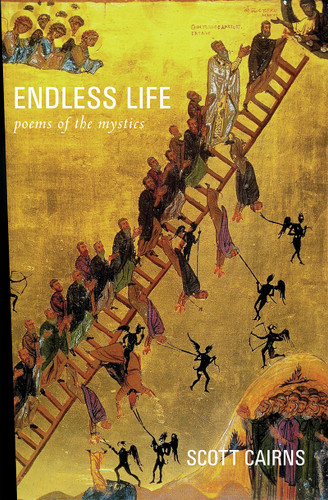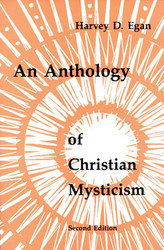From Saint Paul to Julian of Norwich, Scott Cairns has lovingly examined, pressed for the revelation, and set in verse the most memorable, beautiful sayings of the fathers and mothers of Christianity. The startling result is a fresh encounter of ancient wisdom and provocation.
These poems are unified in a common claim that Love is the most compelling name of God and the most apt attribute of the Holy One in whom we live and move and have our being. In that spirit Cairns offers "a mere taste of the bountiful feast that awaits any who would pursue a life of faith and prayer equipped with both the holy Scriptures and the holy tradition that surrounds them."
Product Preview
| Format: | Paperback book |
|---|---|
| Product code: | PP15202 |
| Dimensions: | 5½" x 8.25" |
| Length: | 160 pages |
| Publisher: |
Paraclete Press
|
| ISBN: | 9781612615202 |
| 1-2 copies | $18.48 each |
|---|---|
| 3-9 copies | $17.64 each |
| 10-49 copies | $16.80 each |
| 50-99 copies | $16.38 each |
| 100+ copies | $15.75 each |
Praise
Scott Cairns (b. 1954), the Catherine Paine Middlebush Chair in English at the University of Missouri, has won numerous awards for his dozen of poetry, memoir, essays, and translations. This book was originally published as Love’s Immensity; Mystics on the Endless Life (2007). It includes 116 “adaptations and translations” (paraphrases?) of the writings of 37 Christian mystics. The selections are arranged chronologically, beginning with the apostle Paul, Irenaeus, Melito of Sardis, Origen, Athanasius, etc., and then concluding with St. Therese of Lisieux (1873-1897). Each figure is introduced with a short biographical blurb, but otherwise there’s no commentary.
Cairns converted to the Eastern Orthodox church from Protestantism a number of years ago, and in a short introduction he urges Protestants to reconsider sola scripture in favour of the importance of tradition in the formation of our faith. Many of the selections exemplify some of the Orthodox emphases, like the gift of tears, apophaticism, acedia, hesychasm, and theosis. There are many of the major figures that you’d expect, like Augustine, St. John of the Ladder, Eckhart, and John of the Cross, but also some lesser known saints like Blessed Angela of Foligno, Gertrude of Helfta, Richard Rolle of Hampole, Walter Hiton, and the Russian Nil Sorsky.
Cairns doesn’t define what constitutes the loaded term “mystic.” And it would have been nice to know what text he was “adapting,” so that a reader could return to the original. Still, these are minor quibbles. This is otherwise a rich treasure of Christian spirituality put to poetry. Among Cairns’ many other books, readers might also enjoy Idiot Psalms: New Poems (2014), a collection of 53 new poems; and Compass of Affection (2006), a collection of 85 poems from 1985 to 2006.
Journey With Jesus








